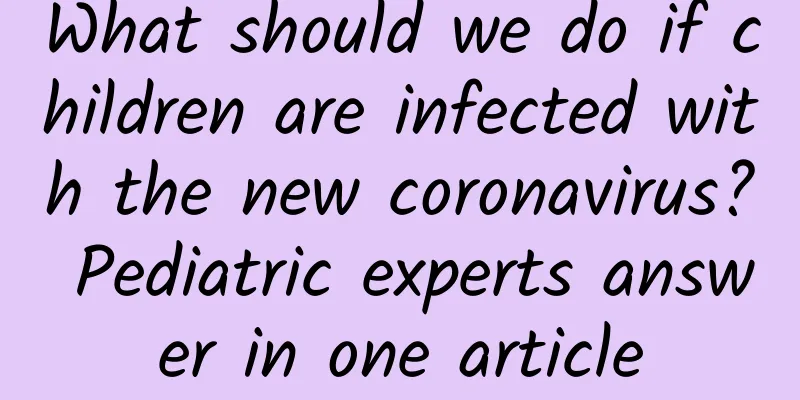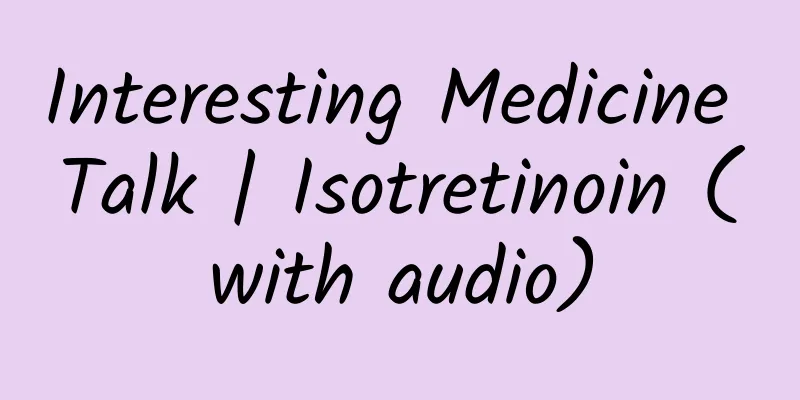What should we do if children are infected with the new coronavirus? Pediatric experts answer in one article

|
At present, it is the peak season for upper respiratory tract infections in autumn and winter, and the risks of common cold, influenza, and new coronavirus infection overlap. So for children, if they are infected with the new coronavirus, how should they deal with it? In what cases do they need to seek medical attention in time? In daily life, what medicines should parents prepare for children to treat the new coronavirus and other upper respiratory tract infections? In this regard, NetEase Health invited Zhang Yi, a member of the Beijing Children's New Coronary Pneumonia Consultation Expert Group and deputy director of the Department of Pediatrics at Beijing Tongren Hospital, to answer the above questions. 1. What should we do if children are infected with the new coronavirus? When parents find that their children are infected with the new coronavirus, they should not panic. If the symptoms are not particularly obvious, symptomatic treatment can be obtained at home. If the child has a fever and the body temperature reaches above 38.5 degrees, you can give the child antipyretics and perform physical cooling. If the child has a continuous high fever, you can take two antipyretics (Motrin and Tylenol) alternately. For children without a history of underlying medical conditions or febrile convulsions, if the body temperature can be quickly lowered after taking the antipyretic, they can continue to observe at home and postpone medical treatment. In addition, you can also give the child some heat-clearing and throat-relieving drugs. When the child has a cough and sputum, you can take cough and phlegm-relieving drugs. With symptomatic treatment, the symptoms will generally gradually ease in about a week. If a child is infected with the new coronavirus but does not show any symptoms, no special treatment is needed. Just drink plenty of water and get enough rest. 2. After children are infected with the new coronavirus, in what situations do they need to seek medical attention promptly? For infants and young children, especially those under two years old, if the initial body temperature is above 39 degrees, and the antipyretic effect is not obvious after taking oral antipyretics for more than two consecutive times, and the body temperature remains above 38 degrees after taking the medicine, and is accompanied by obvious crying and loss of appetite, it is recommended to seek medical attention and prevent febrile convulsions. In addition, if a child coughs up phlegm for a long time, more than 5-7 days, even if the body temperature is relatively stable and the mental state is good, it is recommended to see a doctor to determine whether it is a simple upper respiratory tract infection. If you wait two to three weeks to see a doctor, it may develop into a lower respiratory tract infection, delaying treatment. 3. What should we do if children have febrile convulsions? If a child suddenly shows signs of a high fever convulsion, such as twitching lips, stiff limbs, and foaming at the mouth, parents need to take emergency measures in time. First, you can take a silicone soft spoon used by babies and insert it into the mouth to prevent the child from biting the tongue. Then let the child lie flat, raise the neck, and tilt the baby's head to the right to prevent suffocation caused by vomiting. After that, you can press the tiger's mouth and the philtrum at the same time to promote the recovery of the convulsion. As long as the child can cry, there is no big problem. After that, wait until the baby is a little more stable, and then take him to the hospital for treatment. In addition, some children may have convulsions on the way to the doctor. If this happens, parents need to stop the car in time to help their children complete the above-mentioned first aid operations. Otherwise, the bumpy ride may cause choking on vomit and respiratory and cardiac arrest, which would be very troublesome. 4. What medicines should be prepared at home for children to treat mild cases of COVID-19? For children with fever: it is recommended to prepare Motrin and Tylenol. These two medicines can be taken alternately, and each medicine should be taken no more than 4 times within 24 hours. If one medicine does not last for 4-6 hours and the child has a fever again, then another medicine can be taken. It should be noted that for ordinary children, antipyretics are only needed when the body temperature exceeds 38.5 degrees. For children with febrile convulsions, antipyretics are only needed when the body temperature exceeds 38 degrees. When the child's temperature drops below 38 degrees, Motrin and Tylenol are no longer needed. For antiviral infection: It is recommended to prepare Chinese patent medicines that clear heat and relieve sore throat, such as Lianhua Qingwen Granules, Xiaoer Chiqiao Qingre Granules, Xiaoer Resuqing Granules, Lanqin Oral Liquid, Pudilan Oral Liquid, etc. Some Chinese patent medicines are very bitter. If children have difficulty taking them, you can add rock sugar to improve the taste. It is not recommended to take more than two Chinese patent medicines at the same time except during the high fever period to prevent stimulating diarrhea in children. For children's cough: For Chinese patent medicine, you can choose Xiaoer Kechuanling, Xiaoer Feireqing Granules, Bairui Granules, Feili Ke, etc. For Western medicine, compound pholcodine oral solution is the first choice for early dry cough (recommended for children over two years old). If there is more sputum in the later stage, you can choose Yitanjing, guaifenesin, Mucosolvan syrup and other cough and expectorant drugs. 5. How long does it take for children to recover after being infected with COVID-19? Will there be any sequelae? Generally speaking, the child will be able to recover well within a week. He may still have mild symptoms such as runny nose and cough, but it will not affect the child's normal life. From current observations, there are almost no sequelae in children. However, it is important to note that within 2-4 weeks after the child is infected with the virus, pay attention to whether the child has obvious personality changes or changes in diet structure, and be alert to central nervous system infections caused by late-onset viruses. |
>>: Counterpoint: India's smartphone market shipments to reach 150 million units in 2020
Recommend
What's the matter with the transparent stuff that girls excrete?
Women often have secretions in their vaginas. In ...
What are the symptoms of multiple cervical cysts?
In fact, if women do not pay attention to their b...
Causes of abdominal pain after menstruation
Abdominal pain after menstruation is a common con...
Causes of vaginal itching after sex
Many women will find a phenomenon that makes them...
What to supplement for hair loss during breastfeeding
Some women are born with less hair, and after giv...
What should pregnant women do if they wake up with back pain?
There are often some pregnant women, especially t...
Does uterine cold affect pregnancy? This is the consequence of uterine cold!
Cold uterus can cause dysmenorrhea, soreness of w...
How to cook pig kidneys for pregnant women
Pork kidneys are the kidneys of pigs. Because the...
Why are there so few peaches planted? How can we preserve peaches for a longer time?
In normal times, people eat relatively few peache...
As the weather gets warmer, don't eat this type of rice noodle rolls or rice noodles! Severe cases may cause death!
Be careful when eating wet rice noodles recently ...
Abnormal pimples on areola
Small bumps on the nipples may be caused by norma...
Female gynecological diseases can cause sexual indifference
Nowadays, there are many types of gynecological d...
How often should breast nodules be checked?
Women who develop breast nodules must go to the h...
How to drink tea correctly? Learn the tips for nourishing the liver
The liver is an important detoxification organ in...
How to treat pelvic inflammatory disease?
Pelvic inflammatory disease is a relatively commo...









